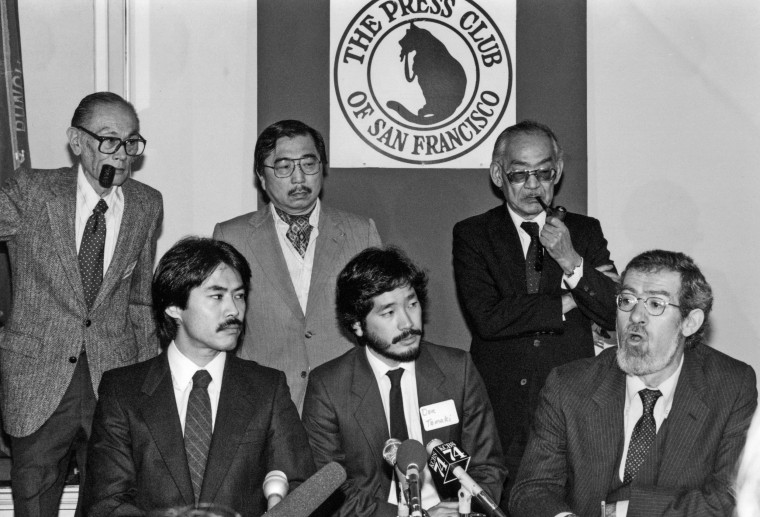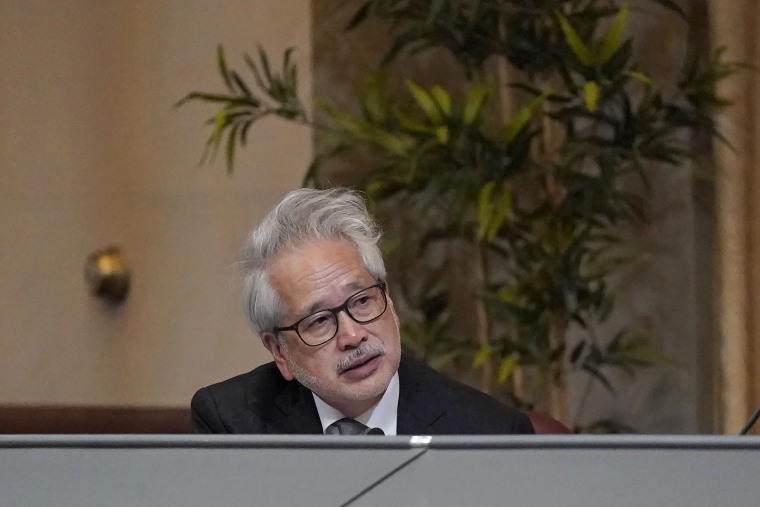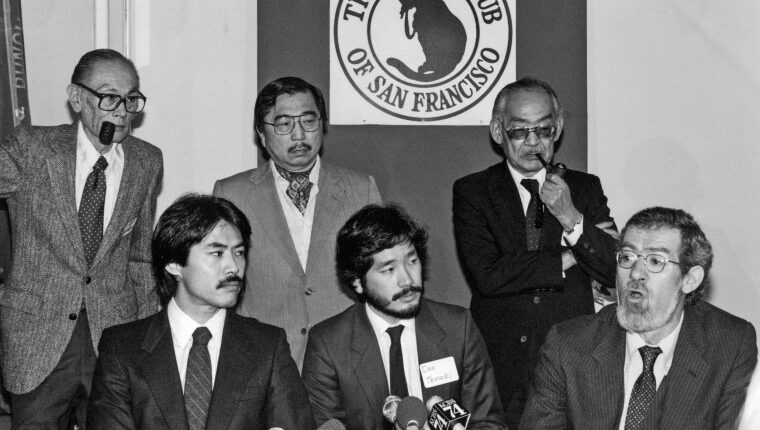As California’s reparations task force prepares to release its final report this week, the group’s only non-Black member says he sees some throughlines between Japanese Americans’ fight for restitution of their civil rights and Black Americans’ push to be compensated for the harms of slavery.
Don Tamaki, a Bay Area-based attorney and one of the nine task force members, has a history of working for redress and reparations for Japanese Americans following their forced incarceration during World War II. Tamaki underscored that while it’s impossible to compare the 400-year plight of Black Americans in the U.S. with that of his own community, he said he hopes to remind others through his work that there’s a deep past of solidarity across the two movements, making Black reparations a critical issue to Japanese Americans and others.
“If it wasn’t for the Black Civil Rights Movement, where would we be?”
DON TAMAKI, REPARATIONS TASK FORCE
“If it wasn’t for the Black Civil Rights Movement, where would we be?” Tamaki told NBC News, referring to the movement’s impact on the Japanese American community. “That whole movement changed the culture a lot. And it changed us. And so it began this movement toward redress and reparations.”
Tamaki and his fellow task force members are scheduled to present a range of recommendations to the state Legislature on Thursday, after more than two years of public hearings and research. While California entered the Union as a nonslave state in 1850, thousands of enslaved Black people were taken there in the mid-1800s, typically by plantation owners, to work in the gold mines. Even after slavery was abolished in 1865, generations of Black Californians contended with discrimination that prevented them from establishing economic security and freedom from racial oppression and terror.

Forty years ago, Tamaki was serving on another task force of sorts. The attorney, then 31, was part of the legal team that helped reopen and overturn the landmark World War II-era Supreme Court case Korematsu v. United States, which upheld the constitutionality of the forced relocation and incarceration of 120,000 Japanese Americans.
“The term ‘Asian American’ was not coined yet. And we called ourselves ‘Orientals,’ and we just assumed we were second-class citizens. What woke us up was Martin Luther King on national television, leading peaceful demonstrators.”
DON TAMAKI, reparations task force
The case isn’t the only connection Tamaki had to the decadeslong Japanese American movement to obtain restitution of civil rights. While he was working on Korematsu’s legal team, his parents, who had been among those forcibly incarcerated during the war, attended hearings and testified in front of a commission established to explore reparations, eventually receiving monetary compensation because of the Civil Liberties Act of 1988. Each survivor received $20,000 and a formal presidential apology.
Tamaki’s family, as well as many other Japanese Americans, had not always been open about their painful experiences in the camps or the enduring racism they contended with after the war, he said. He recalled going to school every Dec. 7 and being accused of bombing Pearl Harbor. Neighbors demanded that his family move from the area because of their ethnicity. And though the acts of discrimination stung, he said for a long time, his family “just accepted it.”

“I don’t think we knew who we were. The term ‘Asian American’ was not coined yet. And we called ourselves ‘Orientals,’ and we just assumed we were second-class citizens,” Tamaki said. “What woke us up was Martin Luther King on national television, leading peaceful demonstrators and being sicced on by dogs and being beaten by police with clubs … just to be able to go to a school, just to be able to sit in a restaurant or be in an integrated bus, and that was followed by a more militant call for Black power.”
“Redress would never have happened without the assistance of African Americans, particularly on the legislative side.”
Brian Niiya, Densho
Brian Niiya, editor of the Densho Encyclopedia, a resource that covers the history of the Japanese American WWII exclusion and incarceration, similarly noted that Japanese Americans growing up in the 1960s were heavily influenced by the Civil Rights Movement and ended up leading the redress movement themselves. Moreover, the Japanese American cause was aided by Black legislators and activists.
“Redress would never have happened without the assistance of African Americans, particularly on the legislative side,” Niiya explained, naming Mervyn Dymally and Ron Dellums, both of whom represented California in Congress, “and many others who played a key role.”
“There’s that connection and that indebtedness that a lot of Japanese Americans from that time remember,” he said.
In both cases, obtaining reparations has felt like somewhat of an uphill battle. Today, reparations for Black Americans elicit mixed feelings from the public, with roughly 3 in 10 U.S. adults saying descendants of enslaved people should be compensated in some way, according to Pew Research. Tamaki said the issue wasn’t always well received when it pertained to the Japanese American community either, with some reluctant to bring up a painful time in their lives, and others fearing that such a policy would have little impact when “they already lost so much.” Across both efforts, outsiders often argue that the injustices happened in the past and therefore should be “let go.”
Tamaki said, however, that there continues to be a lack of understanding around how the racism and discrimination of slavery evolved into different modern-day forms.
“It stems from this idea that reparations is for an aggrieved minority that’s undeserving, and this is a handout,” he said. “Rather this is really a debt. This is a societal obligation resulting from when we go back to 1619 — stolen wages, stolen property, stolen opportunities.”
Niiya similarly noted that the few years of Japanese American incarceration still resulted in economic and psychological impacts across generations. But it’s “nothing compared to the horrors of slavery.”
“It’s natural there’s going to be this long-standing generational impact that results from that. The second thing is that it’s not just slavery,” Niiya said. “There’s things that happened in our lifetime with regard to Jim Crow, with regard to redlining that directly affects generations that are still alive today.”
As it stands, the vast majority of task force proposals deal with reform, while just a handful relate to direct compensation, Tamaki pointed out.
“We have not made a specific recommendation for individual compensation,” he said. “We have hired economists to shine a light on the depth of the economic harm because that’s never been done before, by anybody, and to basically calculate a number and put it before the American public.”
Source: | This article originally belongs to Nbcnews.com









